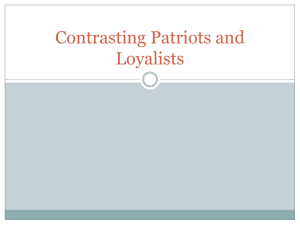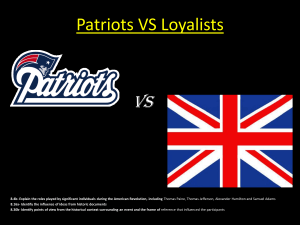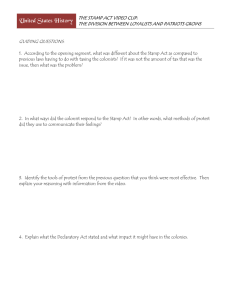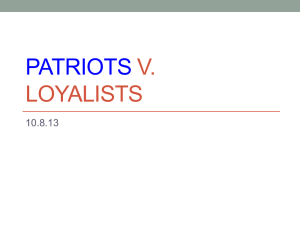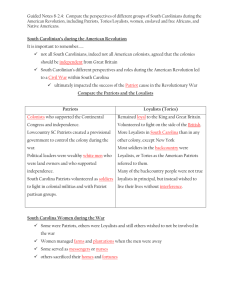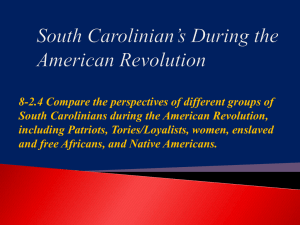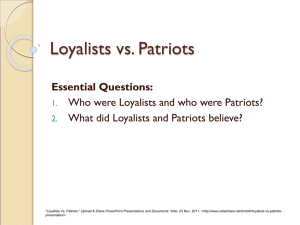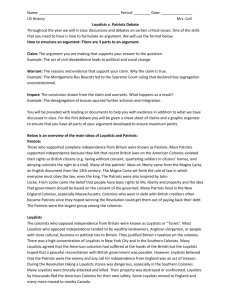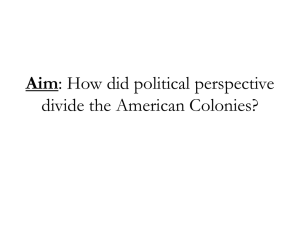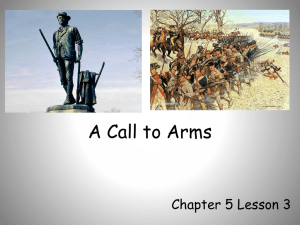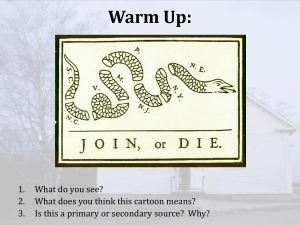Patriots vs. Loyalist Patriots vs. Loyalists
advertisement
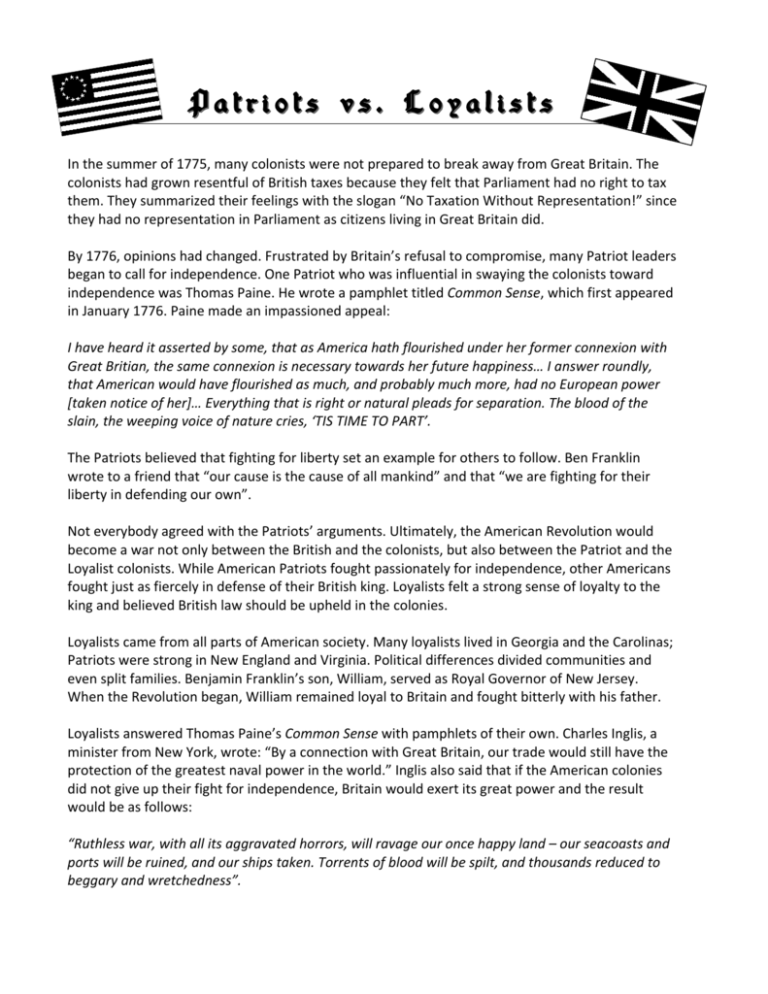
Patriots vs. Loyalists In the summer of 1775, many colonists were not prepared to break away from Great Britain. The colonists had grown resentful of British taxes because they felt that Parliament had no right to tax them. They summarized their feelings with the slogan “No Taxation Without Representation!” since they had no representation in Parliament as citizens living in Great Britain did. By 1776, opinions had changed. Frustrated by Britain’s refusal to compromise, many Patriot leaders began to call for independence. One Patriot who was influential in swaying the colonists toward independence was Thomas Paine. He wrote a pamphlet titled Common Sense, which first appeared in January 1776. Paine made an impassioned appeal: I have heard it asserted by some, that as America hath flourished under her former connexion with Great Britian, the same connexion is necessary towards her future happiness… I answer roundly, that American would have flourished as much, and probably much more, had no European power [taken notice of her]… Everything that is right or natural pleads for separation. The blood of the slain, the weeping voice of nature cries, ‘TIS TIME TO PART’. The Patriots believed that fighting for liberty set an example for others to follow. Ben Franklin wrote to a friend that “our cause is the cause of all mankind” and that “we are fighting for their liberty in defending our own”. Not everybody agreed with the Patriots’ arguments. Ultimately, the American Revolution would become a war not only between the British and the colonists, but also between the Patriot and the Loyalist colonists. While American Patriots fought passionately for independence, other Americans fought just as fiercely in defense of their British king. Loyalists felt a strong sense of loyalty to the king and believed British law should be upheld in the colonies. Loyalists came from all parts of American society. Many loyalists lived in Georgia and the Carolinas; Patriots were strong in New England and Virginia. Political differences divided communities and even split families. Benjamin Franklin’s son, William, served as Royal Governor of New Jersey. When the Revolution began, William remained loyal to Britain and fought bitterly with his father. Loyalists answered Thomas Paine’s Common Sense with pamphlets of their own. Charles Inglis, a minister from New York, wrote: “By a connection with Great Britain, our trade would still have the protection of the greatest naval power in the world.” Inglis also said that if the American colonies did not give up their fight for independence, Britain would exert its great power and the result would be as follows: “Ruthless war, with all its aggravated horrors, will ravage our once happy land – our seacoasts and ports will be ruined, and our ships taken. Torrents of blood will be spilt, and thousands reduced to beggary and wretchedness”. Name ___________________________________ Period ______ Directions: Based on what you learned by reading and discussing the information, answer the following questions as best as you can. Be sure to answer each part of the question using complete sentences and citing evidence (using a quote) from the text at least once to support your answers. A: Demonstrates thoughtful analysis by making notes, asking questions, and identifying key information; all questions are answered and responses cite ideas and opinions from the text; complete sentences. B: All questions are answered but responses may or may not connect ideas and opinions to the text. C: Most, but not all questions are answered; little attempt is made to connect responses to the text. D: Little attempt is made to answer the questions. Answers are incomplete or inaccurate. 1. What arguments did Patriots such as Thomas Paine make? What about Loyalists such as Charles Inglis? List them out and then describe who you agree with and why. PATRIOTS LOYALISTS 2. Create an imaginary dialogue between a Patriot and a Loyalist. Ensure that each side is represented. Be creative (write a text msg or email; or illustrate a short comic/cartoon)! 3. How do you think Loyalists in the colonies were treated during the Revolutionary War? What about after the colonies declared independence and defeated the British? (PREDICT) 4. Patriots summarized their feelings with the slogan “No Taxation Without Representation!” Create a slogan which represents the perspective of the Loyalists.
